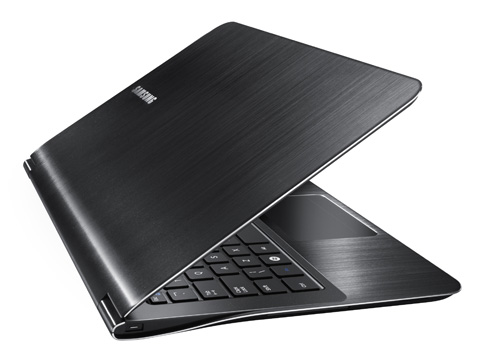Final laptop, ultimate laptop or neither?
 Jeff Atwood has an interesting post today where he says his current laptop may be the last one he buys. The argument is that tablets are a better option now, with longer battery life, less lap overheating, and a nicer form factor. But well, tablets are not for me. I always need a keyboard, a full version of Windows, I rarely need to run on the battery for very long, and the tablet form factor just doesn’t work for me. I like my screen to stand on its own, even on my lap, and having a separated keyboard is just clumsy. The surface looks like an interesting compromise, but the lack of a robust hinge makes it a no-go for me. Also, I want a single machine that works for everything I do.
Jeff Atwood has an interesting post today where he says his current laptop may be the last one he buys. The argument is that tablets are a better option now, with longer battery life, less lap overheating, and a nicer form factor. But well, tablets are not for me. I always need a keyboard, a full version of Windows, I rarely need to run on the battery for very long, and the tablet form factor just doesn’t work for me. I like my screen to stand on its own, even on my lap, and having a separated keyboard is just clumsy. The surface looks like an interesting compromise, but the lack of a robust hinge makes it a no-go for me. Also, I want a single machine that works for everything I do.
I usually buy my desktop machines with a very different approach from the Atwoods and Hanselmans of the world: they seem to always go for the best and change them often, whereas I go for older, cheaper parts that I swap out to make the computers last as long as possible. Buying lots of new devices all the time feels icky to the environmentalist in me.
The last machine I retired was twenty years old and the only reason I changed it was that I got a case for free with the replacement parts I needed. Granted, the case was the only remaining original part. But still, I’ve made it last by swapping old parts with new ones as needed, and it’s been a very economical solution. I never go for the top-of-the-line, makes-your-eyes-bleed-with-ecstasy graphics cards, processors and memory. Instead, I buy year-old-ish parts, in that sweet spot where they have gotten extremely inexpensive but are still the equivalent of last year’s best. Last year was awesome last year, remember? And before you ask, I do most of my gaming on Xbox, so I really don’t need a gaming type of PC.
Laptops are different however: you can’t swap parts so easily. A couple of years ago, I started using my laptop as my main machine. This has the advantage that I can work anywhere with the same tools and data, even if I’m not connected. In my home office, in my rocker in front of the TV, in a coffee house or on the plane. Nothing to copy onto it before I leave, it’s all already there, always, like a little cloud that follows me everywhere I go. Laptops are awesomely light and small nowadays, and they can still pack all the power that I need. When I started working freelance last year, I shopped around and after considering a MacBook Air, I settled on a Samsung Series 9 with 6GB of RAM and 256GB of SSD. I did not want to have to change anything on the machine, and the Samsung was the only machine that reached out of the box all my requirements, one of which was to be very small, and another that I could hook it to a large external screen.
A year after, I still love that machine. I’ve had an issue with the quality of the plastics, and had to replace the piece that surrounds the keyboard after it cracked (covered under the awesome 3-year warranty), and I do resent the lack of anything else than HDMI when I talk at conferences, but overall it’s a fantastic piece of technology and a near-perfect fit for me.
Would I surrender the advantages of having everything I need in a form factor that I like for a hipper tablet? Of course not. As I said, tablets are not for me. They may be fantastic devices, but I need my Visual Studio, my keyboard and my hinge.
Is it the ultimate laptop? Of course not. I wouldn’t mind a retina-like screen, double the SSD, and a little more battery juice.
So why am I telling you all that? In today’s hardware market, we have more variety and form factors than we ever had before: phones, tablets, hybrids, laptops, ridiculously small and cheap microcontrollers that can output HD video, and of course desktops. That’s choice, people, and if you can handle it, it’s a wonderful thing to have. Pick what fits your life and work styles (and make it last).